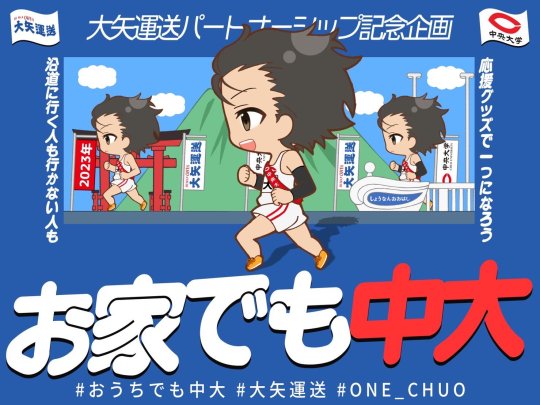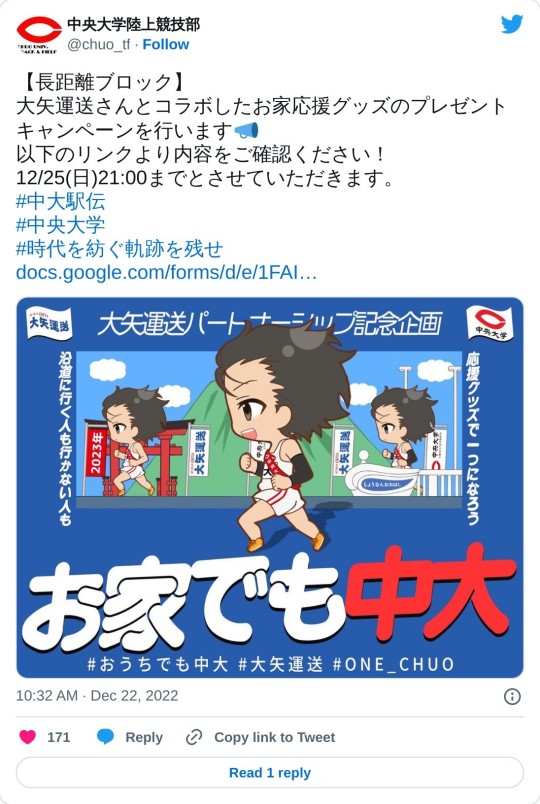#中大
Text
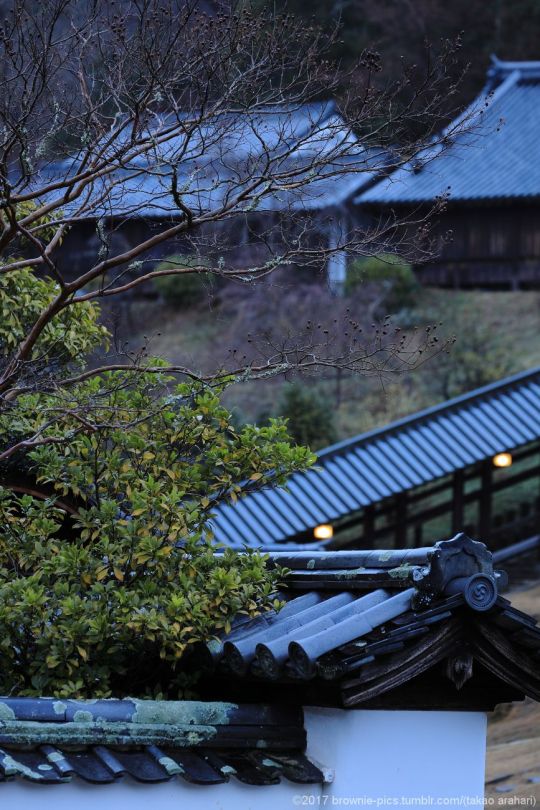

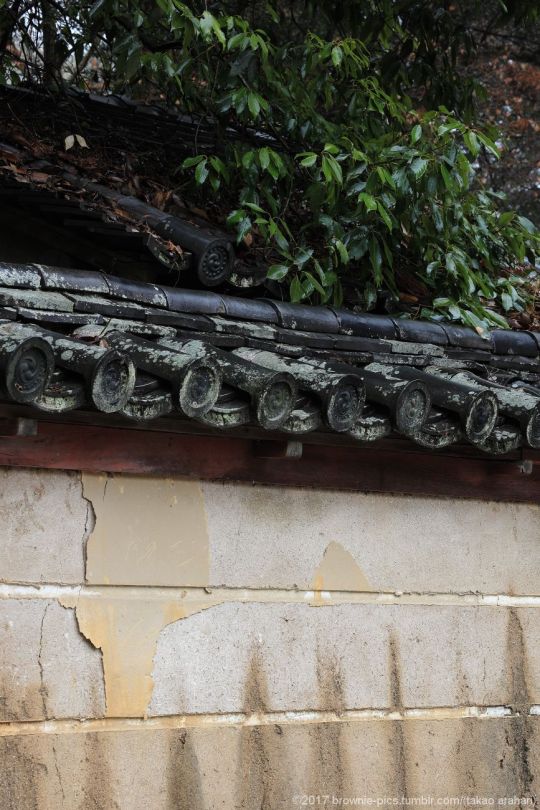
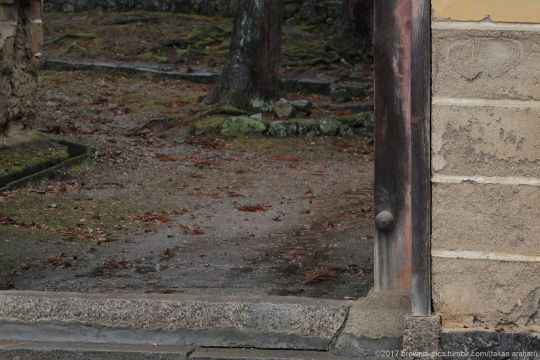
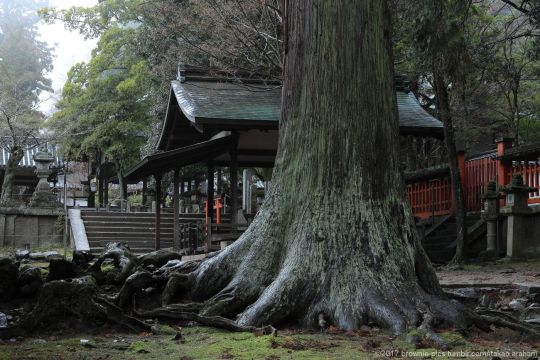
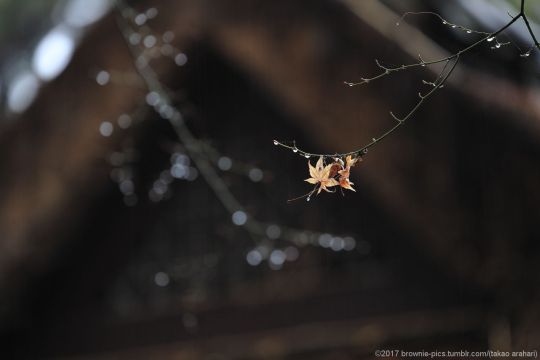


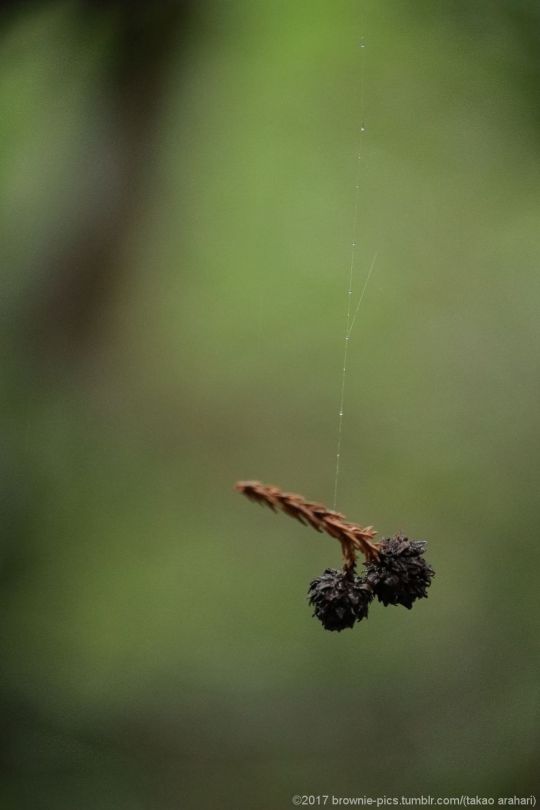
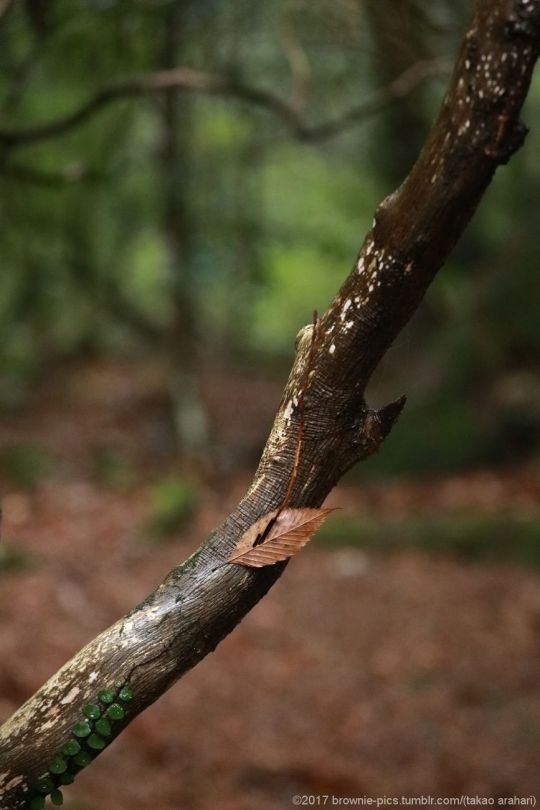
'24.1.21 二月堂付近、手向山八幡宮、水谷神社、春日大社境内、中の禰宜道にて
少し前の雨降りの日。カメラにタオル被せて軒下伝いに移動しつつ撮り歩き。
明後日の日曜は雪予報・・ほんとに降るのかなぁ・・。
#奈良#nara#奈良公園#nara park#日本#japan#東大寺#todaiji temple#手向山八幡宮#tamukeyana hachimangu shrine#水谷神社#mizuya shrine#春日大社#kasuga tasiha shrine#中の禰宜道#nakano negimichi path#冬#winter#雨#rainy day#photographers on tumblr#natgeoyourshot
313 notes
·
View notes
Text
[Hanfu · 漢服]Chinese Western Han (202 BC – 9 AD) Traditional Clothing Hanfu Photoshoot
“这个位子 我有何坐不得?”
“我欲问鼎天下,试问谁与争锋”
"Why can't I sit in this seat?"
"I want to conquer the world, who can compete with me?"
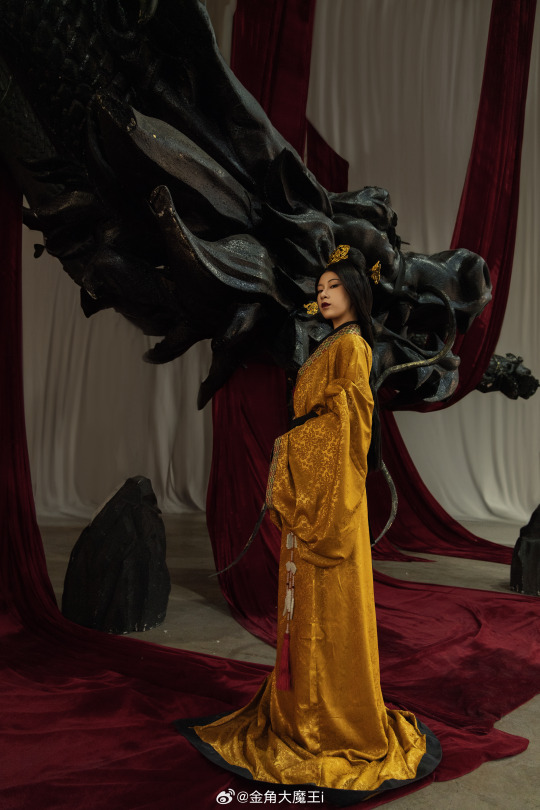
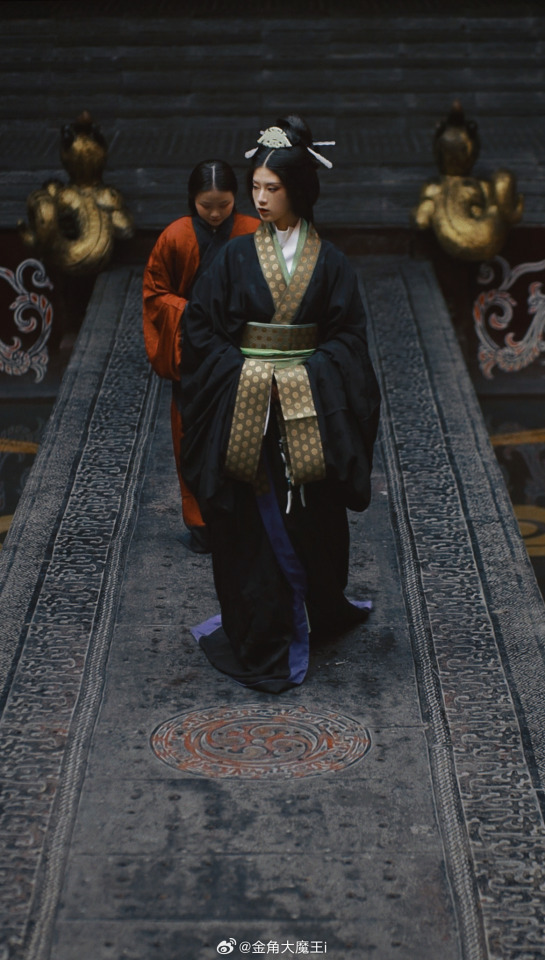
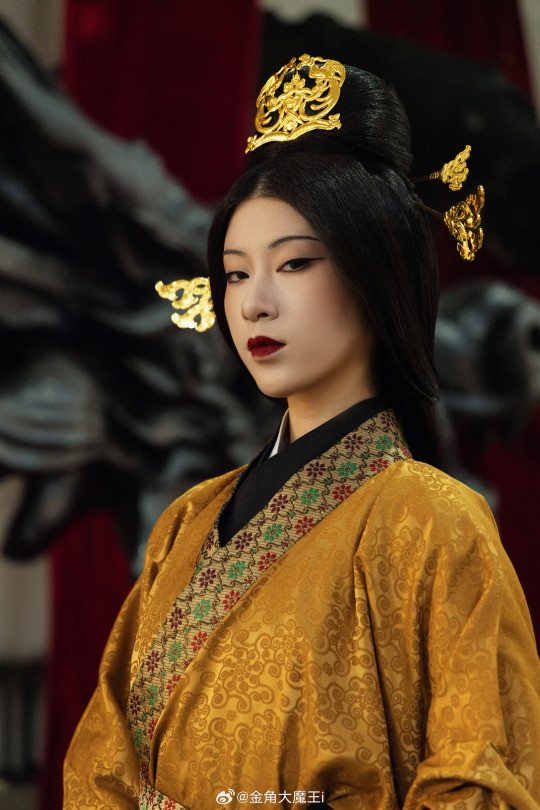
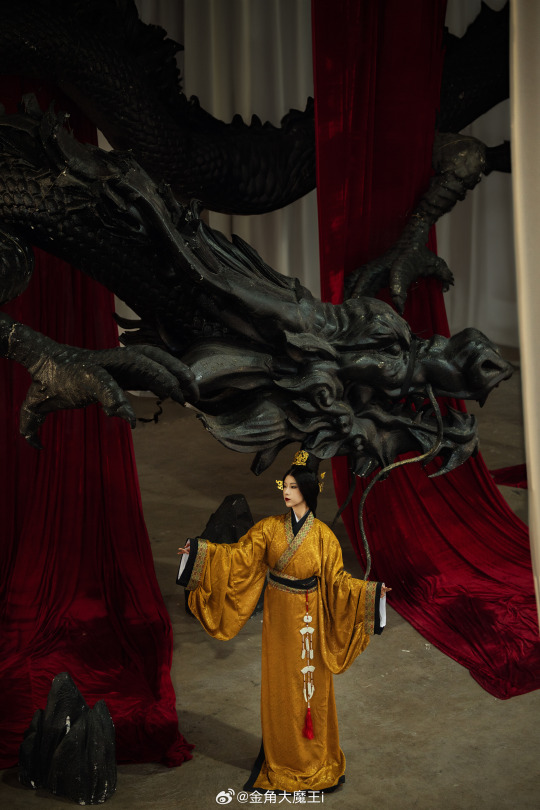

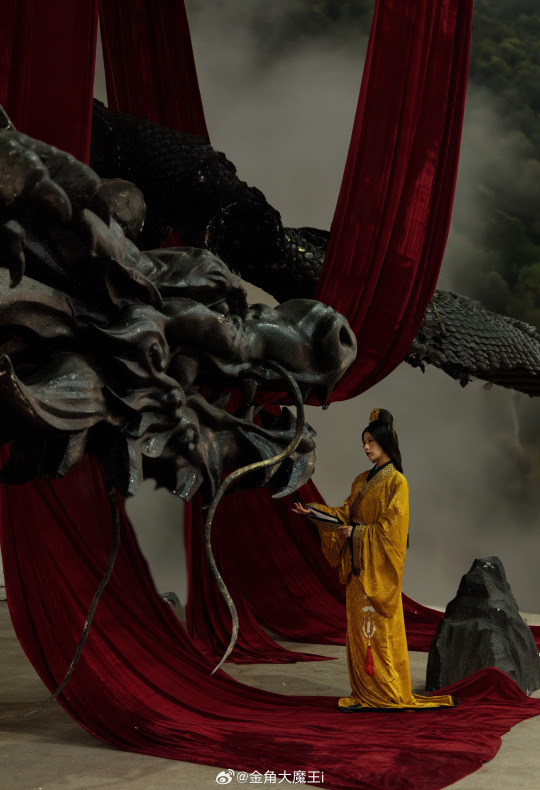


【About The First Empress of the Han Dynasty Empress Lü:Lǚ zhì(吕雉)】
Lü Zhi (241–18 August 180 BC), courtesy name E'xu (娥姁) and commonly known as Empress Lü (traditional Chinese: 呂后; simplified Chinese: 吕后; pinyin: Lǚ Hòu) and formally Empress Gao of Han (漢高后; 汉高后; Hàn Gāo Hòu), was the empress consort of Gaozu, the founding emperor of the Han dynasty. They had two known children, Liu Ying (later Emperor Hui of Han) and Princess Yuan of Lu. Lü was the first woman to assume the title Empress of China and paramount power. After Gaozu's death, she was honoured as empress dowager and regent during the short reigns of Emperor Hui and his successors Emperor Qianshao of Han and Liu Hong (Emperor Houshao).
She played a role in the rise and foundation of her husband, Emperor Gaozu, and his dynasty, and in some of the laws and customs laid down by him. Empress Lü, even in the absence of her husband from the capital, killed two prominent generals who played an important role in Gaozu's rise to power, namely Han Xin and Peng Yue, as a lesson for the aristocracy and other generals. In June 195 BC, with the death of Gaozu, Empress Lü became, as the widow of the late emperor and mother of the new emperor, Empress Dowager (皇太后, Huángtàihòu), and assumed a leadership role in her son's administration. Less than a year after Emperor Hui's accession to the throne, in 194 BC, Lü had one of the late Emperor Gaozu's consorts whom she deeply hated, Concubine Qi, put to death in a cruel manner. She also had Concubine Qi's son Liu Ruyi poisoned to death. Emperor Hui was shocked by his mother's cruelty and fell sick for a year, and thereafter no longer became involved in state affairs, and gave more power to his mother. As a result, Empress dowager Lü held the court, listened to the government, spoke on behalf of the emperor, and did everything (臨朝聽政制, "linchao ting zhengzhi"). With the untimely death of her 22-year-old son, Emperor Hui, Empress dowager Lü subsequently proclaimed his two young sons emperor (known historically as Emperor Qianshao and Emperor Houshao respectively). She gained more power than ever before, and these two young emperors had no legitimacy as emperors in history; the history of this 8-year period is considered and recognized as the reign of Empress Dowager Lü. She dominated the political scene for 15 years until her death in August 180 BC, and is often depicted as the first woman to have ruled China. While four women are noted as having been politically active before her—Fu Hao, Yi Jiang, Lady Nanzi, and Queen Dowager Xuan—Lü was the perhaps first woman to have ruled over united China.
Lü Zhi was born in Shanfu County (單父; present-day Shan County, Shandong) during the late Qin Dynasty. Her courtesy name was Exu (Chinese: 娥姁; pinyin: Éxǔ). To flee from enemies, her father Lü Wen (呂文) brought their family to Pei County, settled there, and became a close friend of the county magistrate. Many influential men in town came to visit Lü Wen. Xiao He, then an assistant of the magistrate, was in charge of the seating arrangement and collection of gifts from guests at a banquet in Lü Wen's house, and he announced, "Those who do not offer more than 1,000 coins in gifts shall be seated outside the hall." Liu Bang (later Emperor Gaozu of Han), then a minor patrol officer (亭長), went there bringing a single cent and said, "I offer 10,000 coins." Lü Wen saw Liu Bang and was so impressed with him on first sight, that he immediately stood up and welcomed Liu into the hall to sit beside him. Xiao He told Lü Wen that Liu Bang was not serious, but Liu ignored him and chatted with Lü. Lü Wen said, "I used to predict fortunes for many people but I've never seen someone so exceptional like you before." Lü Wen then offered his daughter Lü Zhi's hand in marriage to Liu Bang and they were wed. Lü Zhi bore Liu Bang a daughter (later Princess Yuan of Lu) and a son, Liu Ying (later Emperor Hui of Han).
Liu Bang later participated in the rebellion against the Qin Dynasty under the insurgent Chu kingdom, nominally-ruled by King Huai II. Lü Zhi and her two children remained with her father and family for most of the time during this period.
Even after Emperor Gaozu (Liu Bang)'s victory over Xiang Yu, there were still unstable areas in the empire, requiring the new government to launch military campaigns to pacify these regions thereafter. Gaozu placed Empress Lü Zhi and the crown prince Liu Ying (Lü Zhi's son) in charge of the capital Chang'an and making key decisions in court, assisted by the chancellor Xiao He and other ministers. During this time, Lü Zhi proved herself to be a competent administrator in domestic affairs, and she quickly established strong working relationships with many of Gaozu's officials, who admired her for her capability and feared her for her ruthlessness. After the war ended and Emperor Gaozu returned, she remained in power and she was always influential in many of the country's affairs.
In his late years, Emperor Gaozu started favouring one of his younger consorts, Concubine Qi(戚夫人), who bore him a son, Liu Ruyi, who was instated as Prince of Zhao in 198 BC, displacing Lü Zhi's son-in-law Zhang Ao (Princess Yuan of Lu's husband). Gaozu had the intention of replacing Liu Ying with Liu Ruyi as crown prince, reasoning that the former was too "soft-hearted and weak" and that the latter resembled him more. Since Lü Zhi had strong rapport with many ministers, they generally opposed Gaozu's decision but the emperor seemed bent on deposing Liu Ying. Lü Zhi became worried and she approached Zhang Liang for help, and the latter analysed that Gaozu was changing the succession on grounds of favouritism. Zhang Liang invited the "Four Whiteheads of Mount Shang", a group of four reclusive wise men, to persuade Gaozu to change his decision. The four men promised to assist Liu Ying in future if he became emperor, and Gaozu was pleased to see that Liu Ying had their support. Gaozu told Concubine Qi, "I wanted to replace (the crown prince). Now I see that he has the support of those four men; he is fully fledged and difficult to unseat. Empress Lü is really in charge!" This marked the end of the dispute over the succession and affirmed Liu Ying's role as crown prince.
In June 195 BC, Emperor Gaozu died and was succeeded by Liu Ying, who became historically known as Emperor Hui of Han. Lü Zhi was honoured by Emperor Hui as empress dowager. She exerted more influence during the reign of her son than she had when she was empress, and she became the powerful and effective lead figure in his administration.
Lü Zhi did not harm most of Gaozu's other consorts and treated them according to the rules and customs of the imperial family. For example, consorts who bore male children that were instated as princes were granted the title of "Princess Dowager" (王太妃) in their respective sons' principalities. One exception was Concubine Qi, whom Lü Zhi greatly resented because of the dispute over the succession between Liu Ruyi (Qi's son) and Liu Ying. Liu Ruyi, the Prince of Zhao, was away in his principality, so Lü Zhi targeted Concubine Qi. She had Qi stripped of her position, treated like a convict (head shaved, in stocks, dressed in prison garb), and forced to do hard labour in the form of milling rice.
Roles in the deaths of Concubine Qi and Liu Ruyi
Lü Zhi then summoned Liu Ruyi, who was around the age of 12 then, to Chang'an, intending to kill him together with his mother. However Zhou Chang (周昌), the chancellor in Liu Ruyi's principality, whom Lü Zhi respected because of his stern opposition to Emperor Gaozu's proposal to make Liu Ruyi crown prince, temporarily protected Liu Ruyi from harm by responding to Lü Zhi's order that, "The Prince of Zhao is ill and unfit for travelling over long distances." Lü Zhi then ordered Zhou Chang to come to the capital, had him detained, and then summoned Liu Ruyi again. Emperor Hui tried to save Liu Ruyi by intercepting his half-brother before the latter entered Chang'an, and kept Liu Ruyi by his side most of the time. Lü Zhi refrained from carrying out her plans for several months because she feared that she might harm Emperor Hui as well.
One morning in the winter of 195-194 BC, Emperor Hui went for a hunting trip and did not bring Liu Ruyi with him because the latter refused to get out of bed. Lü Zhi's chance arrived, so she sent an assassin to force poisoned wine down Liu Ruyi's throat. The young prince was dead by the time Emperor Hui returned. Lü Zhi then had Concubine Qi killed in an inhumane manner: she had Qi's limbs chopped off, eyes gouged out, ears sliced off, nose sliced off, tongue cut out, forced her to drink a potion that made her mute, and had her thrown into a latrine. She called Qi a "human swine" (人彘). Several days later, Emperor Hui was taken to view the "human swine" and was shocked to learn that it was Concubine Qi. He cried loudly and became ill for a long time. He requested to see his mother and said, "This is something done not by a human. As the empress dowager's son, I'll never be able to rule the empire" From then on, Emperor Hui indulged himself in carnal pleasures and ignored state affairs, leaving all of them to his mother, and this caused power to fall completely into her hands.
When Lu first came to the court, she planned to establish the Lu family members as "kings (nobles)". This was not only to commemorate her deceased relatives, but also to strengthen her power in the court. However, Wang Ling, the prime minister at the time, immediately pointed out that the great ancestor Liu Bang(Husband of Lu, founding emperor of Han Dynasty)once killed the white horse and agreed that "if someone who are not Liu family be come the king, the whole world should attack them." Therefore, the move of establishing a foreign surname as the king violated the ancestral system established by Liu Bang and was really inappropriate.
Faced with the obstruction of Wang Ling, Empress Lu responded by deposing him and insisting on honoring her deceased father and two brothers as King Lu Xuan, King Wu Wu, and King Zhao Zhao. After setting this precedent, Lu was out of control. She not only named her three nephews Lu Tai, Lu Chan, and Lu Lu as King Lu, King Liang, and King Zhao respectively, but also named her grandnephew Lu Tong. He was the King of Yan, and his grandson Zhang Yan was granted the title of King of Lu.
In addition, there are also quite a few people with the surname Lu who have been granted the title of marquis. As a result, it can be said that many princes surnamed Lu appeared in the court in the blink of an eye. They controlled the government and became the cornerstone and support for Empress Lu to control the right to speak in the court.
Empress Lu's life was emblematic of the intricate power dynamics of the Han Dynasty in ancient China. Born into a modest family, Lu rose to prominence through her marriage to Emperor Gaozu. Her astute political acumen and strategic alliances allowed her to wield significant influence behind the throne. As the mother of several emperors, she orchestrated their ascensions and manipulated court politics to consolidate power for her family. However, her ruthless pursuit of control and elimination of rivals earned her both admirers and enemies. In the end, her ambitions led to her downfall, as her unchecked power and manipulation of succession angered the nobility.As a result, after her death, the Lu family was retaliated and killed by the nobles and courtiers who supported the Han Dynasty, and the family was almost exterminated.Empress Lu's life illustrates the delicate balance of power, ambition, and intrigue in ancient Chinese imperial courts.
Literati in every dynasty in China often likened women who attempted to participate in government affairs and influence national policies to Empress Lü, saying they were vicious. One of them was Wu Zetian, the first official female emperor of China. However, compared with Empress Lü, Wu Zetian was more talented. Unlike Empress Lü, who was simply vicious, she ignored the system and stability of the empire and put personal and family interests first.
________________
📸Photo & Model :@金角大魔王i
🔗Weibo:https://weibo.com/1763668330/NFVOXthxX
________________
#chinese hanfu#Western Han (202 BC – 9 AD)#hanfu#Empress Lü#Lǚ zhì(吕雉)#china history#chinese history#hanfu accessories#hanfu_challenge#chinese traditional clothing#china#chinese#woman in history#漢服#汉服#中華風#金角大魔王i#historical fashion
287 notes
·
View notes
Text

270 notes
·
View notes
Text

Tokyo, 2010
Ota-ku, Tokyo, Japan.
日本 東京都 大田区 中馬込
Photography by Michitaka Kurata
#japan#tokyo#ota-ku#nakamagome#cat#cats#kitten#brother#sisters#digital camera#dslr#photography#photographers on tumblr#d2h#nikon#2010#日本#東京#大田区#��馬込#猫#日本猫#兄弟#姉妹#子猫#住宅街#街角#デジタルカメラ#デジタル一眼カメラ#オールドデジタルカメラ
157 notes
·
View notes
Text

#ai Beauty #可愛#
#ai美女#可愛いものが好き#可愛い#白丝裤袜 白丝萝莉 白丝袜 肉丝袜 肉丝 肉丝丝足 恋物癖 护士约炮 护士 大学生兼职 学生约炮 学生丝袜 嫩b 少女 少女映画 萝莉幼女 足控 丝袜脚 高中生 高中女生 高中生约炮 高中制服#高中生
476 notes
·
View notes
Photo
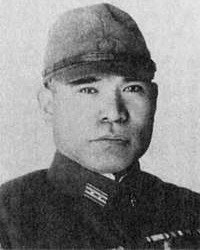
「米軍最強の海兵隊を全滅させた男」 を知っていますか? 彼の名前は、 陸軍中将・中川州男(なかがわ くにお) 太平洋戦争において 最大の被害を米軍に与えたと言われる 「ペリリュー島の戦い」を指揮しました。 日本兵1万に対して、 上陸してくるアメリカ兵は4万8000という 圧倒的な兵力差。 この圧倒的に不利な状況で アメリカ軍を追い詰めた作戦とは、、、 ==== ペリリュー島の戦いは アメリカ軍にとって、 隠したくなるほど不名誉で 甚大な被害を出した戦いだった、、、 1944年3月 ペリリュー島に派遣された中川州男 彼はこの時すでに、 絶対的な守備力不足を痛感していました。 「米軍と正面から ぶつかっても勝ち���はない…」 そう考えた中川は ある戦略を実行しました。 それは、、、 島内の中央部に「地下壕」を張り巡らせる というものでした。 ペリリュー島独自の特徴である 天然の洞窟や鉱石の採掘場 の存在に着目し、 大規模な地下陣地を 構築したのです。 日本兵たちは地下陣地を作り、 約5ヶ月という歳月をかけて 入念に準備をしました。 1944年9月、 完全に要塞化されたペリリュー島に 何も知らない米軍が上陸したのです。 まず中川は 米軍が上陸するであろうビーチに 砲撃を降らせました。 そして 米軍を島の内陸に追い込み、 日本兵の姿が見えなくなった と思わせたところで、 地下陣地で待機していた日本兵たちの 容赦ない攻撃が始まったのです。 兵器、兵士の数で 5〜6倍以上の差があったため アメリカ軍の計画では 島を4日で攻略する予定だったと言われています。 それにも関わらず、 最終的に2ヶ月半を要することとなり、 アメリカ軍の作戦計画を 大きく狂わせることとなったのです。 また中川は、 勝利だけにこだわったのではなく 島民への疎開指示を行いました。 そして 島が歪むほどの戦いと表現された ペリリュー島での戦いで 住民の犠牲者は1人も出さなかったのです。 このように中川州男は 圧倒的不利な状況の中でも 冷静に状況判断を行い、 一般市民や部下たち を守りながら 準備周到で アメリカ軍を迎え撃ちました。 そして「米軍最強」と言われた、 アメリカ海兵隊の第 1 海兵師団を 全滅へと導いたのです。 現在でも中川州男は アメリカで称賛されるほど有名ですが 日本では ほとんど知られていません、、、 このように 日本人には知られていない歴史が まだまだ存在します。 教科書では数ページで 終わってしまう近現代の歴史、、、 そこには 全く描かれていないような出来事の中にも 確かに日本人の歩みがあり 先人たちの葛藤や苦悩、 ドラマが詰まっています。 一人一人の軍人たちの生涯と 各局面での意思決定を追っていくと 今まで負けたことだけを クローズアップされていた 戦争の真実が 見えくるかもしれません、、、
416 notes
·
View notes
Text
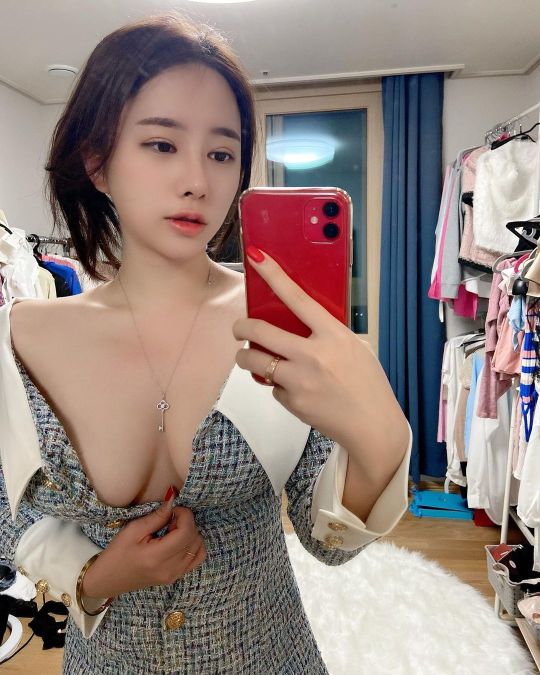
單身, 剛分手不久,希望找一個不進入生活的砲友,需要才聯繫,不打擾也不需要負責的那種 我喜歡性格好比較謙虛的哥哥或者弟弟,有誠意的加我WhatsApp +852 5695 5918
94 notes
·
View notes
Text


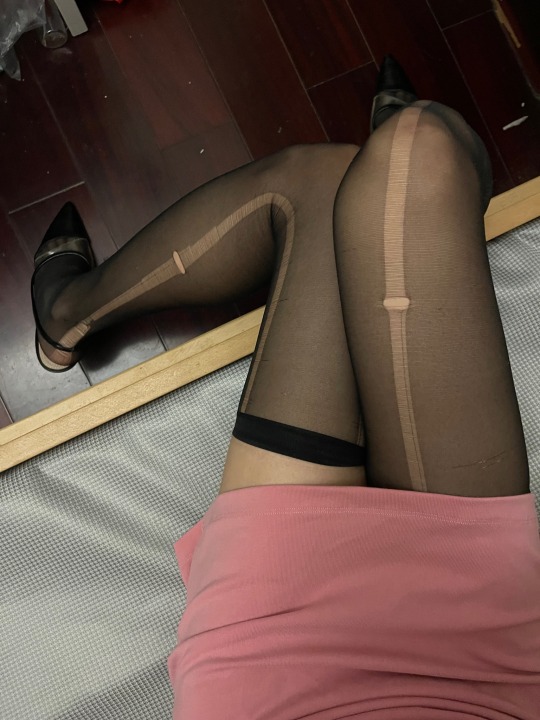
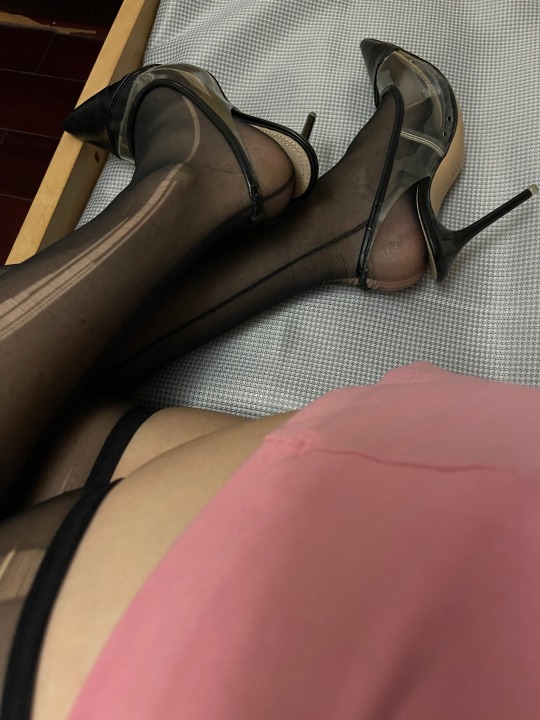

👠屏射我🥹
#高跟鞋#反差#美女#白丝裤袜 白丝萝莉 白丝袜 肉丝袜 肉丝 肉丝丝足 恋物癖 护士约炮 护士 大学生兼职 学生约炮 学生丝袜 嫩b 少女 少女映画 萝莉幼女 足控 丝袜脚 高中生 高中女生 高中生约炮 高中制服#纯欲#丝袜腿#高跟鞋控
292 notes
·
View notes
Text
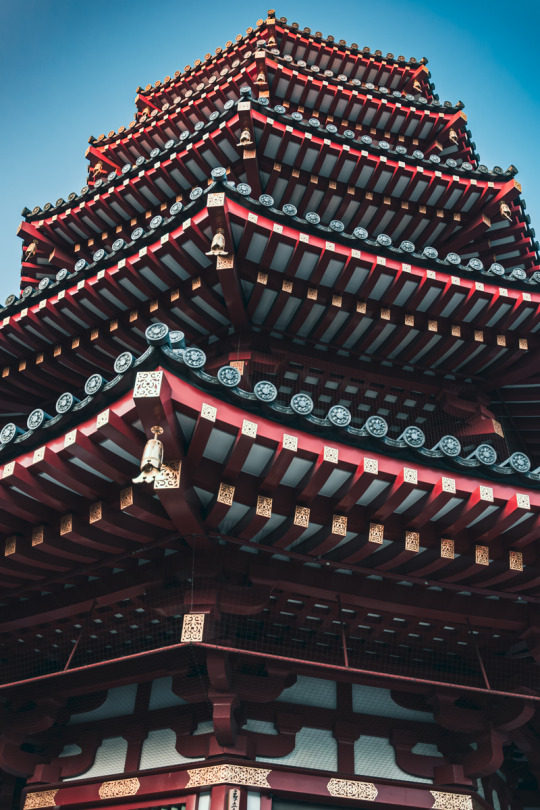
八角五重塔
2016年、川崎大師。
八角形の五重塔。八角は最も円に近い建造物の形といわれ、「包容力」「完全性」の象徴。
#Lightroom Classic#photographers on tumblr#lensblr#original photographer#original photographers#original photographers on tumblr#original photography#original photography blog#original photography on tumblr#photoblog#photography#Japan#Kawasaki#日本#川崎#川崎大師#八角五重塔#中興塔#Pagoda#Octagonal Five-Storied Pagoda
189 notes
·
View notes
Text
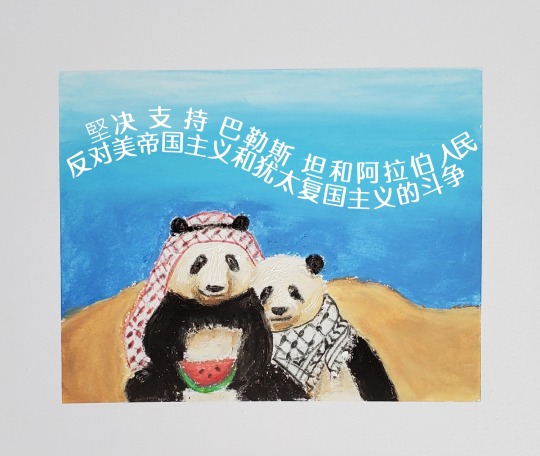
"Support Palestinians against US imperialism and Zionism."
Oil pastel on paper, by me 林翡.
#Mine#pandasblr#Panda#熊猫#Xiaohongshu#Oil pastel#Palestine#Palestinian#Chinese#中文#mandarin#Art#artists on tumblr#大熊猫#Hehua#HeYe
115 notes
·
View notes
Note
Hi! Do you mind going over the new IVE mv and the aspects of Chinese culture in it? I did my own research, and I think most things cnetz are like upset about are borderline also in kr culture (I'm a bit sceptical by their knot choice tho), EXCEPT for the tuanshan! Which I'm pretty sure is chinese only. Thankyouu
Hi.
Yes I mind. I am not into kpop but I look up that video and the first thing I saw is that smoking tube which I hate (it is a signature Orientalism pose). I will not spend my holiday looking at things that I don't like and write analysis in proper English to explain in anger. From the half of minute or so the video I watched the whole aesthetic (the colour choice, the style of the hills and clouds etc.) was just very "guochao". I don't know what "Korean traditional culture design in modern" in Korea looks like now but that vibe just scream China for Chinese citizens. Even you have noticed the knot and tuanshan.
#don't smoke#and don't do drugs#not even weed thank you#韩国人前科罄竹难书#什么请了苏绣大师去交流回头宣传说是韩国绣#给马来西亚使者发中国画复制品说是韩国画#难道这是长江以北是韩国长江以南是越国的世界吗
54 notes
·
View notes
Text

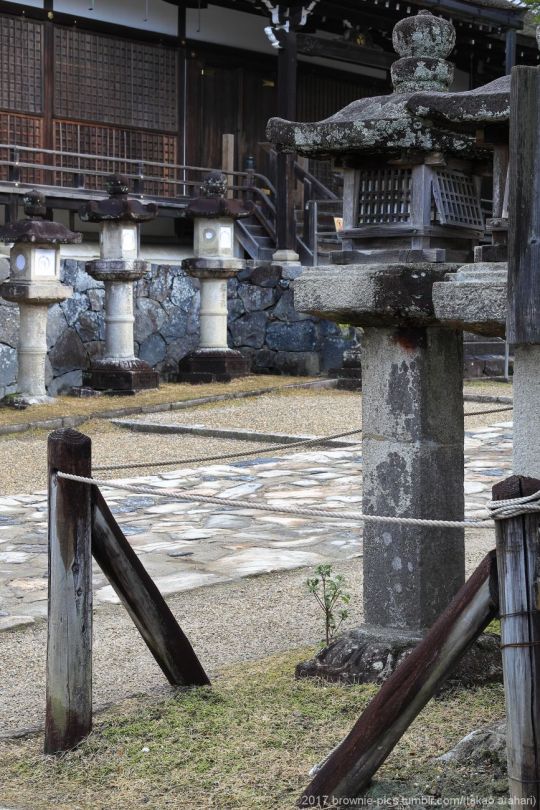
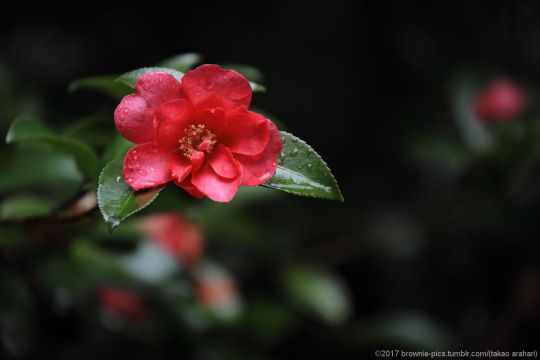

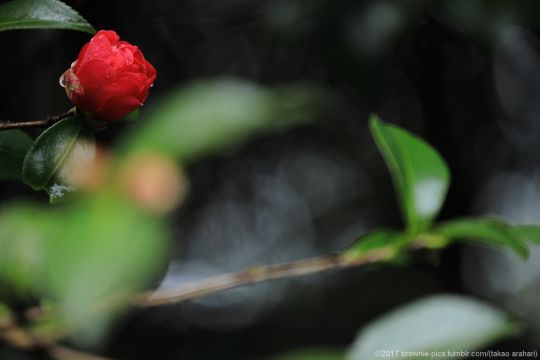
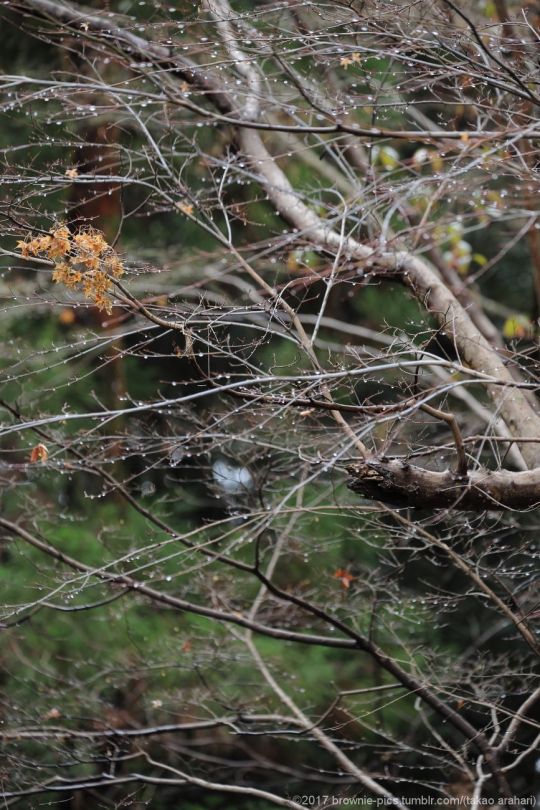
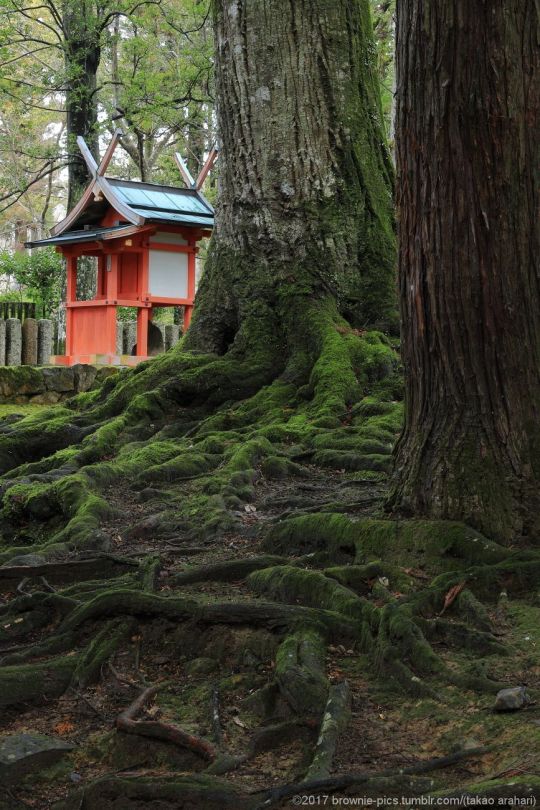





'24.2.4 春日大社境内、参道、中の禰宜道にて
雪に降られず、むしろフラれて小雨と曇り。仕方なく地味に撮り歩く朝。それでも境内の一角では寒椿が雨を弾いて麗しく咲いていました。
#奈良#nara#奈良公園#nara park#日本#japan#春日大社#kasuga tasiha shrine#中の禰宜道#nakano negimichi path#寒椿#camellia#冬#winter#photographers on tumblr#natgeoyourshot
143 notes
·
View notes
Text

按摩 舒壓 水療 養生 SAP 個人工作室★環境乾淨優雅安靜,誠意邀約加WhatsApp: 85264937330
#香港找服務#香港約炮#香港一夜情#香港約啪#香港約會按摩#香港伴遊#香港出租女友#香港新茶#香港大學生#邊度找服務#新界#Hongkong#華人約炮#香港约炮#香港找服务#香港性服务#元朗沙田#九龍灣仔#香港反差女#荃灣#香港仔#香港島#葵湧#深水埗#按摩足浴#中环#柴湾
66 notes
·
View notes
Text
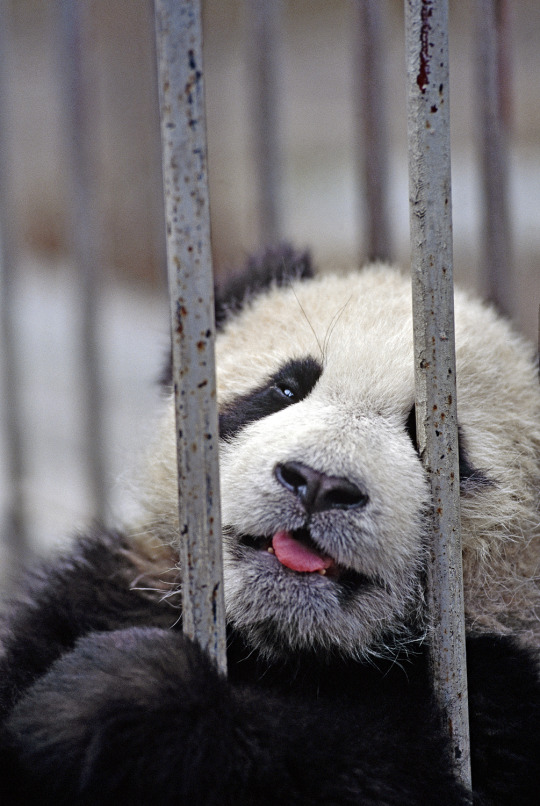
China, 2001
Panda, Wolong, Sichuan, China.
中国 四川省 臥龍パンダ保護研究センター
Photography by Michitaka Kurata
#china#sichuan#wolong#wolong panda research center#panda#baby panda#cage#photography#photographers on tumblr#color film#reversal film#slide film#film#35mm#35mm film#fujifilm#2001#中国#四川省#臥龍#臥龍自然保護区#パンダ保護研究センター#パンダ#子パンダ#大熊猫#カラーフィルム#リバーサルフィルム#スライドフィルム#ポジフィルム#カラーポジ
111 notes
·
View notes
Photo



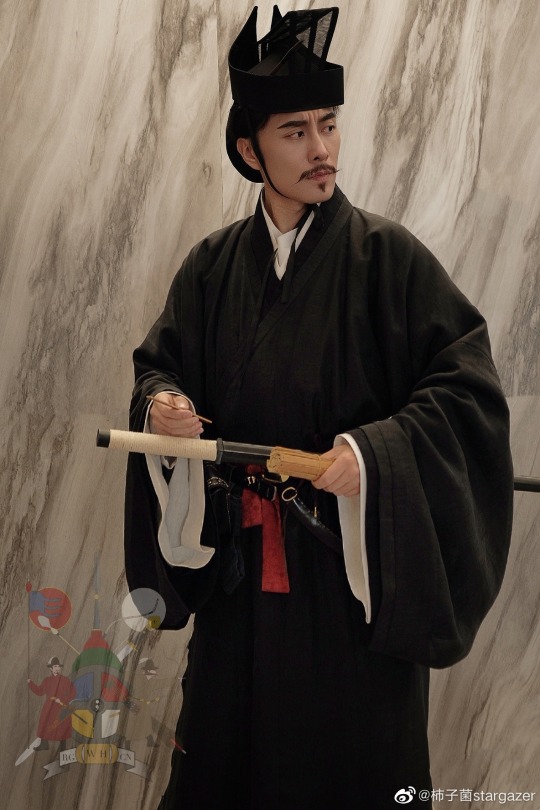





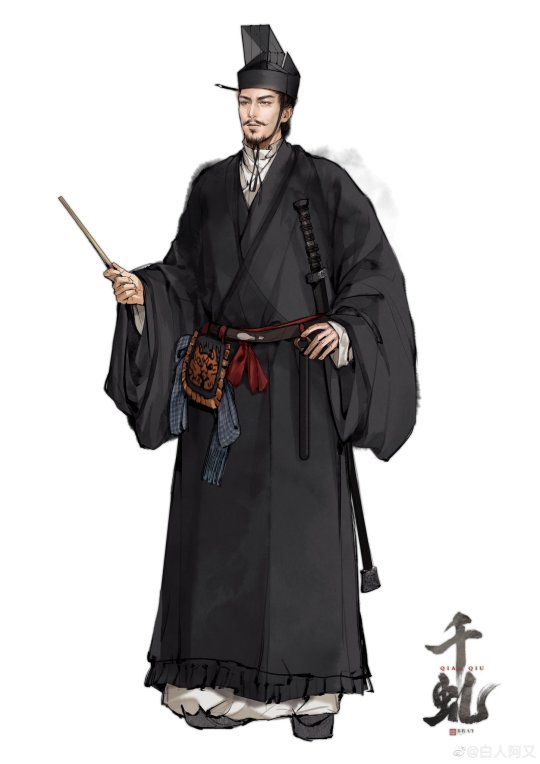
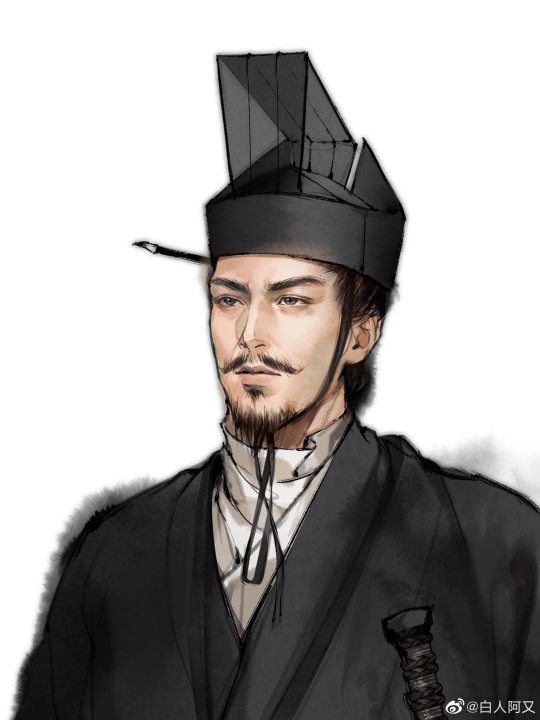
【Reference Artifacts】
Chinese Western Han Dynasty-Eastern Han Dynasty(202 BC – 9 AD, 25–220 AD) Murals and Stone Carvings
the court dress of Civil Officials during the Eastern Han(25-220)dynasty.
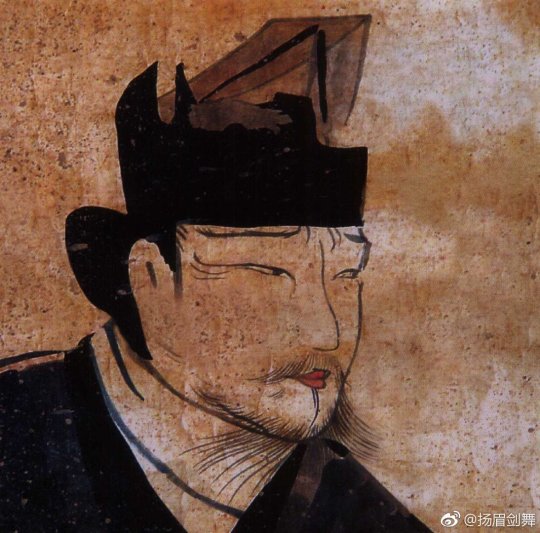
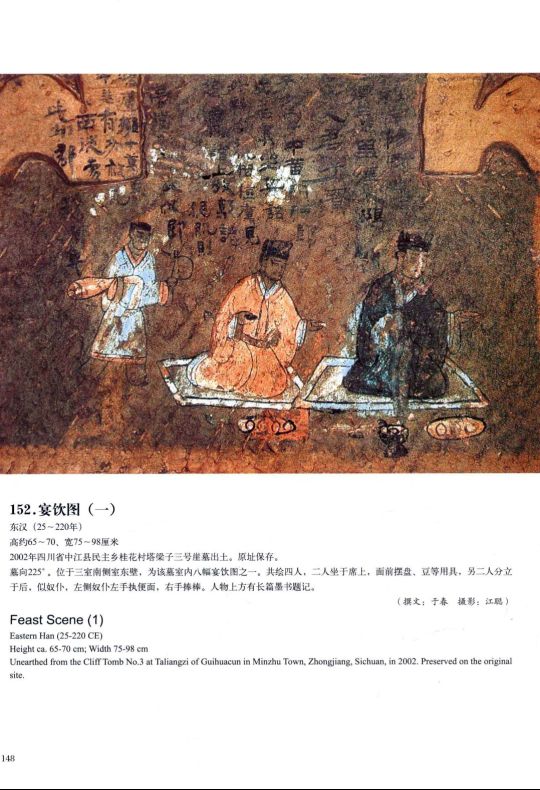
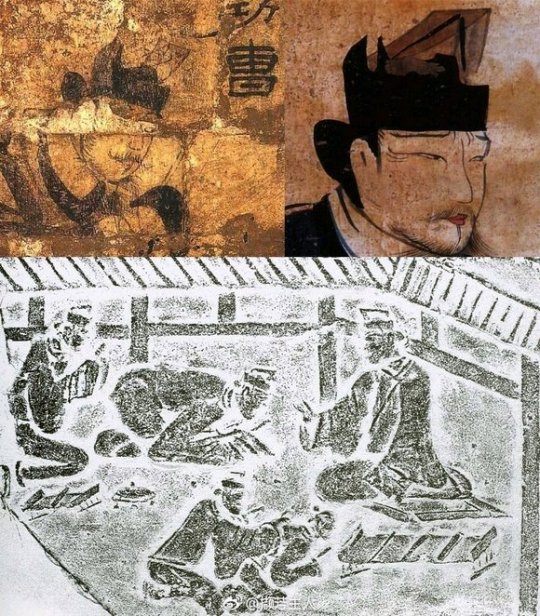
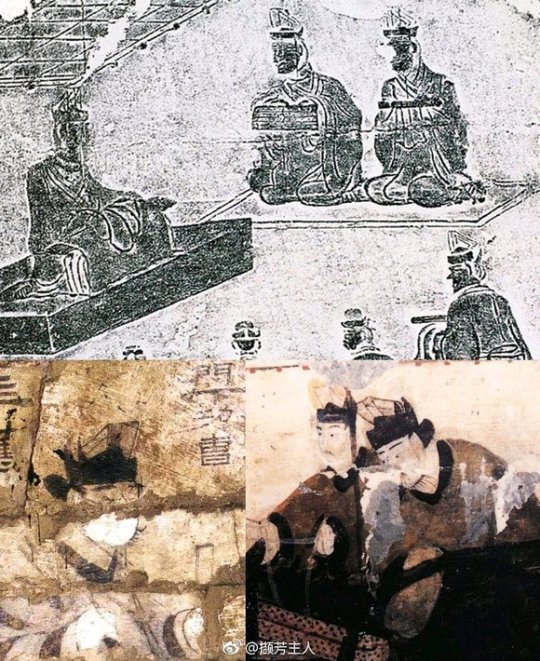
[Hanfu · 漢服]Chinese Eastern Han Dynasty (25–220 A.D.) Hanfu-Civil Officials Based On Han Dynasty Relics
【History Note】
In the Eastern Han Dynasty, officials were divided into civil officials(文官) and military officials (武官),and civil officials usually wore black robes and a cloth crown called "Jinxian Crown/進賢冠" on their heads.
The military officer (武官) is different from the civilian officer. They wear red robes and wear a crown call” Wubian DaGuan/Huben crown(武弁大冠 or 虎贲冠)”,These crown is characterized by always having two feathers on it
Refer to the picture below to distinguish between civil officials and military officials in the Eastern Han Dynasty
pic from Romance of the Three Kingdoms (TV series in 1994)
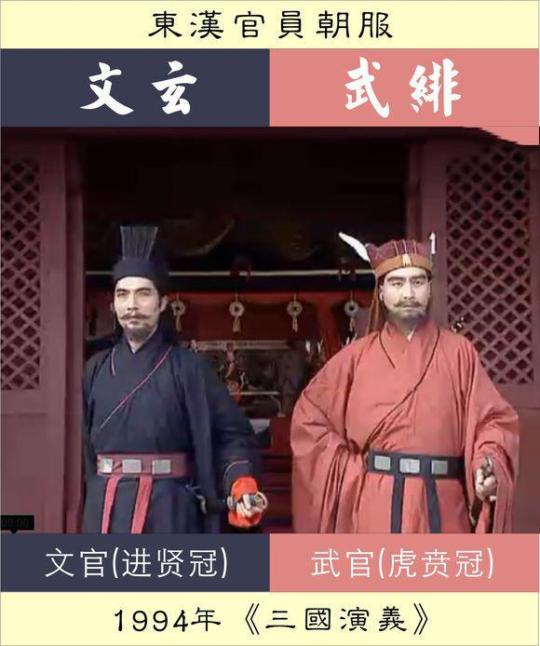
During the Three Kingdoms period(220–280 AD) in China (the end of the Eastern Han Dynasty), Zhuge Liang(諸葛亮), a well-known Chinese military engineer, strategist, statesman, and writer should wear the above civil official clothes when meet the emperor instead of wearing the clothes like below:

・↑Portrait of Zhuge Liang in the China Ming Dynasty(1368-1644 AD).
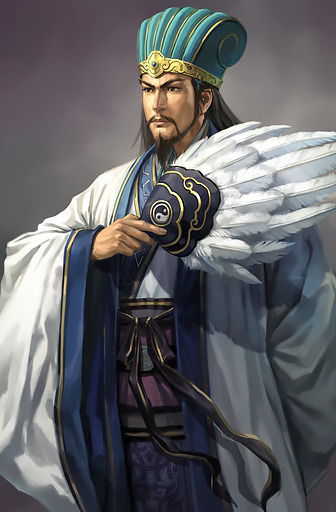
・↑The image of Zhuge Liang produced by a Japanese game company
----
The above image is the image of Zhuge Liang imagined by later generations combine with the actual costumes at the Song Dynasty(960–1279 AD) in China.
The Three Kingdoms game, including those made by the Japanese, is also based on the image of Zhuge Liang imagined and drawn by people after the Song Dynasty(960–1279 AD).
Which is not conform to the clothing that Zhuge Liang should have worn in Three Kingdoms period(220–280 AD,the end of the Eastern Han Dynasty)
________________
🙋♂️Model & Recreation Work:@柿子菌stargazer
📸Photo: @张宇莹-小花
🎨Painting Artist:@白人阿又
🔗Weibo:https://weibo.com/1812652835/N1w7AClHo & https://weibo.com/6137313995/Msbxt7ynG
________________
#chinese hanfu#Eastern Han Dynasty#Three Kingdoms period(220–280 AD)#Civil Officials#military officer#Zhuge Liang#Jinxian Crown/進賢冠#Wubian DaGuan/Huben crown(武弁大冠 or 虎贲冠)#皂緣中衣#皂禪衣#柿子菌stargazer#张宇莹-小花#白人阿又#hanfu#historical clothing#historical fashion#hanfu history#漢服#hanfu accessories#hanfu artifacts
313 notes
·
View notes
